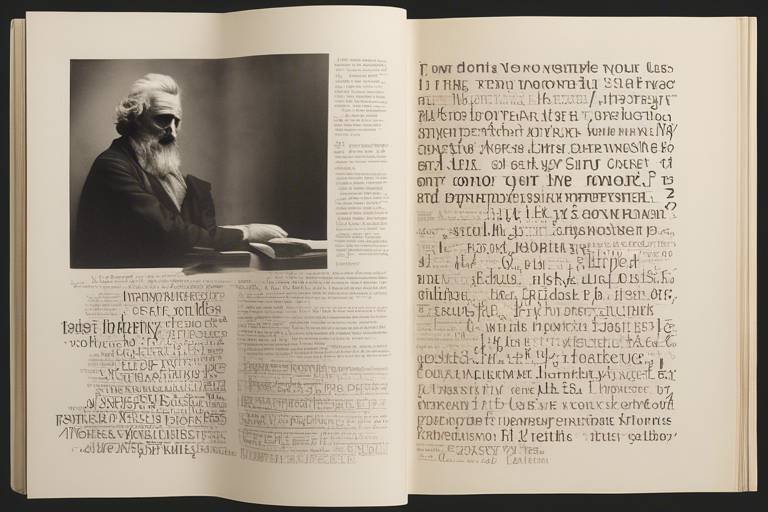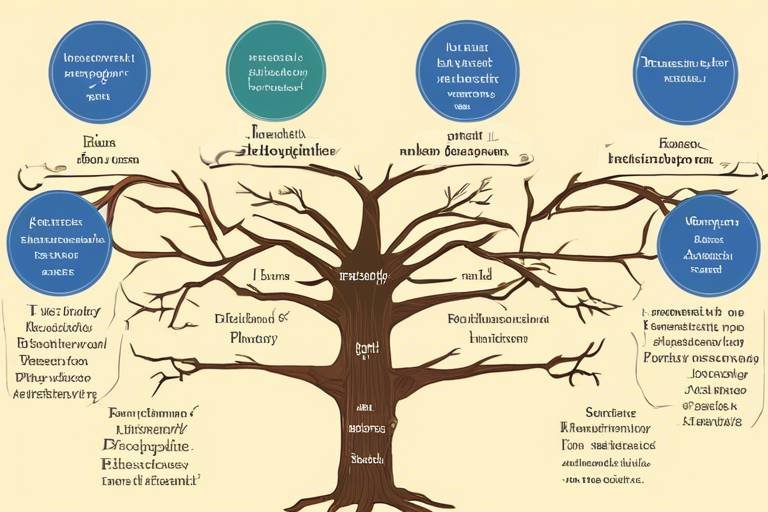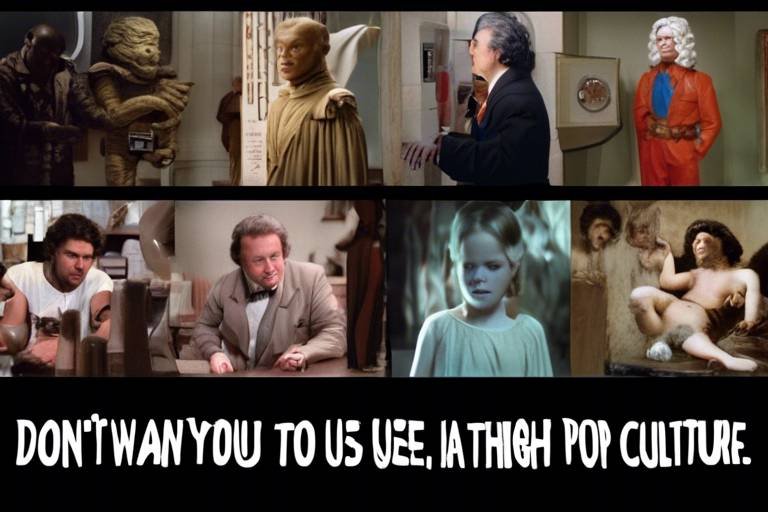The Philosophy of Language - An Evaluation
Language is not just a tool for communication; it is a profound reflection of our thoughts, culture, and understanding of the world. The intricate relationship between language and thought has fascinated philosophers for centuries. In this article, we will embark on a journey through the rich landscape of language philosophy, examining key theories, influential thinkers, and contemporary debates. Have you ever pondered how the words we choose shape our reality? Or how different languages can lead to different ways of thinking? These questions are at the heart of the philosophy of language, which seeks to unravel the complexities of meaning, reference, and the very nature of language itself.
The evolution of language philosophy is a tapestry woven from the threads of various historical milestones and key figures. From the ancient Greeks, who laid the groundwork for philosophical inquiry, to modern thinkers who challenge our understanding of language, the journey has been both enlightening and transformative. Thinkers like Plato and Aristotle began exploring the nature of language and its connection to reality, while later philosophers such as Descartes and Locke expanded these ideas into the realms of epistemology and metaphysics. Each era brought forth new challenges and insights, reflecting the changing landscape of human thought and society.
At the core of language philosophy lie several prominent theories that seek to interpret the function and nature of language. Among these, realism, nominalism, and structuralism stand out. Realism posits that language reflects an objective reality, suggesting that words correspond to actual entities in the world. In contrast, nominalism rejects this notion, arguing that language is simply a collection of names without inherent meaning beyond their use. Structuralism, on the other hand, analyzes language as a system of signs, focusing on how meaning is constructed through relationships within the language itself. Each of these perspectives offers a unique lens through which to view the complexities of language and meaning.
When examining the debate between realism and nominalism, we find two distinct approaches to understanding universals and their implications for language. Realists argue that universals exist independently of the words we use to describe them. For instance, when we say "dog," we refer to a category of animals that exists in the world. Realist philosophers maintain that language serves as a bridge to this objective reality.
In contrast, nominalists contend that universals are merely names or labels we attach to particular objects or experiences. They assert that language does not capture any inherent essence of the things it describes. Instead, it is a practical tool for communication. This fundamental disagreement raises important questions about the nature of meaning and how we understand the world around us.
Realist philosophers argue that language is a reflection of an objective reality. They believe that words are more than just sounds or symbols; they correspond to actual entities and concepts in the world. This perspective underpins the idea that language has a direct relationship with the truths of existence. For example, when we use the term "tree," we are not just uttering a sound; we are referring to a tangible object that exists in our environment. This belief in a correspondence between language and reality is a cornerstone of realist thought.
On the flip side, nominalism challenges the realist viewpoint by suggesting that language is merely a collection of names devoid of intrinsic meaning. According to nominalists, when we label something, we are not uncovering a universal truth but rather creating a convenient way to communicate about our experiences. For instance, the word "love" may evoke different feelings and meanings for different people, illustrating that language is subjective and context-dependent. This perspective emphasizes the role of human interaction in shaping meaning, suggesting that language is a social construct rather than a reflection of an objective reality.
Structuralism takes the analysis of language a step further by viewing it as a system of signs. This approach, pioneered by thinkers like Ferdinand de Saussure, posits that meaning is derived from the relationships between words rather than from any inherent qualities. In this framework, language is a dynamic system where the meaning of a word is shaped by its context and its relation to other words. Post-structuralism, emerging as a critique of structuralism, argues that meaning is even more fluid and unstable, influenced by cultural and societal factors. This shift highlights the complexity of language and its role in shaping human thought and understanding.
Throughout the history of language philosophy, several key thinkers have made substantial contributions that continue to influence our understanding today. Ludwig Wittgenstein, for instance, introduced the concept of language games, emphasizing that the meaning of words is derived from their use in specific contexts. His work challenges the notion of fixed meanings, suggesting that language is a living entity shaped by social interactions.
Noam Chomsky revolutionized linguistics with his theory of generative grammar, proposing that the ability to generate language is innate to humans. His ideas have sparked extensive debates about the nature of language acquisition and the cognitive processes underlying communication. These thinkers, among others, have shaped the landscape of language philosophy, providing valuable insights into the intricate relationship between language, thought, and reality.
As we navigate the contemporary landscape of language philosophy, several debates remain at the forefront of scholarly discussion. One of the most compelling questions is whether language shapes thought or vice versa. This inquiry delves into the relationship between linguistic structures and cognitive processes, prompting us to consider how our language influences our perception of reality.
Another critical area of discussion is the concept of linguistic relativity. The Sapir-Whorf hypothesis asserts that the structure of a language can affect its speakers' worldview and cognition. This raises fascinating questions about how different languages can lead to varying interpretations of the same phenomena, highlighting the profound impact language has on our understanding of the world.
- What is the main focus of the philosophy of language? The philosophy of language primarily explores the relationship between language, thought, and reality, examining how language shapes our understanding and communication.
- Who are some key figures in the philosophy of language? Influential thinkers include Ludwig Wittgenstein, Noam Chomsky, and Ferdinand de Saussure, each contributing unique perspectives on language and meaning.
- What is the difference between realism and nominalism? Realism posits that language reflects an objective reality, while nominalism argues that language is merely a collection of names without inherent meaning.
- How does language influence thought? The relationship between language and thought is complex, with ongoing debates about whether language shapes our thoughts or if our thoughts shape our language.

[Historical Context of Language Philosophy]
The exploration of language philosophy is a journey through time, reflecting humanity's attempt to understand the very fabric of communication and thought. It all began in ancient civilizations where philosophers pondered the essence of words and their connection to reality. Thinkers like Plato and Aristotle laid the groundwork for future discussions by questioning whether names are merely labels for objects or if they hold deeper meanings. Plato, for example, introduced the idea of ideal forms, suggesting that words could point to universal truths beyond the tangible world. This early philosophical inquiry set the stage for centuries of debate.
As we moved into the medieval period, the discourse evolved with the likes of St. Augustine, who emphasized the role of language in divine communication. Augustine argued that language is a gift from God, enabling humans to convey complex ideas and emotions. This perspective highlighted the sacredness of words, intertwining language with theology and morality. Meanwhile, Thomas Aquinas further developed these ideas, integrating Aristotelian logic with Christian doctrine, thus influencing how language was perceived in relation to truth and knowledge.
Fast forward to the modern era, where the Enlightenment sparked a renewed interest in empiricism and rationalism. Philosophers like Descartes and Locke began to explore the cognitive aspects of language, questioning how it relates to human understanding. Locke, in particular, argued that words are mere signs that represent ideas in our minds, laying the groundwork for later discussions on semantics and meaning. This period marked a significant shift, as language was increasingly seen as a tool for thought rather than just a means of communication.
In the 19th century, the field of linguistics began to take shape, with figures like Ferdinand de Saussure introducing the concept of the linguistic sign, which consists of the signifier (the word) and the signified (the concept). Saussure's work laid the foundation for structuralism, emphasizing that language is a system of differences rather than a direct reflection of reality. This perspective shifted the focus from individual words to the relationships between them, revolutionizing how we understand language as a social phenomenon.
As we entered the 20th century, the philosophy of language continued to flourish with the contributions of thinkers like Ludwig Wittgenstein. His ideas on language games suggested that the meaning of words is rooted in their use within specific contexts. This notion challenged the traditional view of language as a fixed system and opened up new avenues for understanding how meaning is constructed through social interactions.
Today, the historical context of language philosophy serves as a rich tapestry, woven with the thoughts of countless philosophers. The evolution of these ideas reflects our ongoing quest to understand not just language itself but also the intricate relationship between language, thought, and reality. As we delve deeper into the key philosophical theories and influential thinkers that have shaped this discourse, we can appreciate the profound implications of language on human understanding and communication.
- What is the main focus of language philosophy? Language philosophy primarily examines the nature, origin, and usage of language, exploring how it relates to thought and reality.
- Who are some key figures in the philosophy of language? Notable philosophers include Ludwig Wittgenstein, Ferdinand de Saussure, and Noam Chomsky, each contributing unique perspectives on language and meaning.
- How has language philosophy evolved over time? Language philosophy has transitioned from ancient inquiries into the essence of words to modern explorations of language as a social construct and its implications for understanding human cognition.

[Key Philosophical Theories]
The philosophy of language is a rich and complex field that has evolved over centuries, with various schools of thought offering unique perspectives on how we understand and use language. In this exploration, we will delve into some of the most prominent theories, including realism, nominalism, and structuralism, each providing a distinct lens through which we can interpret the function and nature of language. These theories not only influence academic discourse but also shape our everyday communication and understanding of the world around us.
At the heart of the debate lies the question of whether language is a reflection of reality or merely a construct of human thought. Realism posits that language corresponds to an objective reality, suggesting that the words we use have inherent meanings that relate to actual entities in the world. This perspective holds that there are universal truths that language can convey, allowing for a shared understanding among speakers. For instance, when we say "tree," we are referring to a specific entity that exists in the physical world, and our language captures this reality.
On the flip side, nominalism challenges this notion by arguing that universals do not exist independently of the names we assign to them. According to nominalists, language is simply a collection of labels we use to categorize our experiences. When we call something a "tree," we are not tapping into an objective reality but rather using a term that has been socially constructed to represent a particular concept. This perspective raises intriguing questions about the nature of meaning and whether words can ever truly encapsulate the essence of what they describe.
Furthermore, the emergence of structuralism and its subsequent evolution into post-structuralism has added another layer of complexity to our understanding of language. Structuralists view language as a system of signs, where meaning is derived from the relationships between these signs rather than from the signs themselves. For example, the meaning of the word "cat" is not just about the animal it refers to but also about how it relates to other words like "dog" or "pet." This relational approach highlights the fluidity of meaning and the role of context in shaping our understanding.
Post-structuralism takes this idea further by emphasizing the instability of meaning. Thinkers in this realm argue that meanings are not fixed but are constantly shifting based on cultural and social contexts. This perspective invites us to question the authority of language and the assumptions we make about its ability to convey truth. It challenges the idea that words can ever fully capture reality, suggesting instead that they are always subject to interpretation and change.
In summary, the key philosophical theories surrounding language—realism, nominalism, structuralism, and post-structuralism—offer diverse insights into how we understand and use language. Each theory presents compelling arguments that provoke thought and discussion, inviting us to reflect on the profound relationship between language, meaning, and reality. As we navigate through these theories, we uncover not only the intricacies of language but also the complexities of human thought and communication.
- What is the main difference between realism and nominalism? Realism asserts that language reflects an objective reality, while nominalism argues that universals are merely names without inherent meaning.
- How does structuralism differ from post-structuralism? Structuralism focuses on the relationships between signs in a stable system, whereas post-structuralism emphasizes the fluidity and instability of meaning.
- Why is the philosophy of language important? It helps us understand how language shapes our thoughts, perceptions, and interactions, influencing both personal and societal communication.

[Realism vs. Nominalism]
When diving into the intricate world of language philosophy, one of the most compelling debates centers around the concepts of realism and nominalism. These two philosophical stances offer contrasting views on the nature of universals and how they relate to language and meaning. At the heart of this discussion is a fundamental question: do universals exist independently of the words we use, or are they merely constructs created by our linguistic practices?
Realism asserts that universals—categories or properties that can be shared by multiple entities—exist in a way that is independent of our thoughts or language. For example, when we talk about the concept of "redness," a realist would argue that there is an actual quality of "red" that exists in the world, regardless of whether we have a word for it or not. This perspective implies that our language is a tool that reflects an objective reality. In this view, words are not just arbitrary symbols; they have a direct correspondence to the entities they represent. Realist philosophers like Plato and Aristotle have laid the groundwork for this perspective, emphasizing the importance of a shared reality that language aims to describe.
On the flip side, nominalism challenges this idea, positing that universals do not exist independently of the particular instances we encounter. According to nominalists, "redness" is simply a label we assign to a range of experiences and observations of red objects. In their view, language is a collection of names and terms that serve practical purposes rather than representing inherent truths about the world. This perspective suggests that meaning is not derived from an objective reality but is instead shaped by our social interactions and conventions. Notable nominalist thinkers, such as William of Ockham, argue that the existence of universals is unnecessary and that we should focus on the specific instances we can observe.
The implications of these differing views extend beyond mere semantics; they influence how we understand knowledge, communication, and even our perception of reality. For instance, if one adheres to realism, they might argue that language can accurately convey truths about the world. Conversely, a nominalist might contend that our understanding is limited by the language we use, leading to a more subjective interpretation of meaning. This debate raises intriguing questions about the role of language in shaping our thoughts and experiences.
To illustrate the contrast between realism and nominalism, consider the following table:
| Aspect | Realism | Nominalism |
|---|---|---|
| Existence of Universals | Universals exist independently | Universals are mere names |
| Nature of Language | Reflects objective reality | Constructed through social interaction |
| Example | The concept of "beauty" exists | "Beauty" is a label for various experiences |
Ultimately, the debate between realism and nominalism invites us to reflect on the power of language in shaping our understanding of the world. Are we merely naming our experiences, or is there a deeper reality that our words strive to capture? This philosophical inquiry not only enriches our appreciation of language but also challenges us to consider how our perceptions are influenced by the words we choose to use.
- What is realism in philosophy?
Realism posits that universals exist independently of our thoughts and language, suggesting that language reflects an objective reality. - What is nominalism?
Nominalism argues that universals are merely names we assign to particular instances, with no independent existence outside of our language. - How do realism and nominalism affect language?
Realism implies that language can accurately convey truths about the world, while nominalism suggests that meaning is shaped by social conventions.

[Realist Perspectives]
Realist perspectives in the philosophy of language assert that language serves as a mirror to an objective reality. This viewpoint holds that when we use words, we are not merely playing with sounds or symbols; rather, we are referring to actual entities and truths that exist independently of our perceptions. Think of it like a map: while the map itself is a representation, it accurately reflects the geography of the land it depicts. In this sense, realists argue that our linguistic expressions correspond to the world around us, allowing us to communicate meaningful information about it.
One of the foundational ideas in realist philosophy is the concept of universals. Realists contend that universals—such as properties, classes, and relations—exist in a way that transcends individual instances. For example, the concept of "redness" exists as a quality that can be found in multiple objects, like apples and fire trucks. This idea leads to the belief that language can effectively capture these universals, enabling us to discuss and understand them through words. When we say "the apple is red," we are not just describing a specific apple but also invoking the broader universal quality of redness.
Moreover, realist philosophers argue that language is not merely a tool for communication, but a fundamental aspect of human cognition. They suggest that our understanding of the world is deeply intertwined with the language we use. This perspective posits that words carry inherent meaning that reflects the structure of reality itself. For instance, when we employ scientific terminology, we believe it accurately conveys the underlying truths of the natural world. Thus, realists maintain that the purpose of language is to uncover and articulate these truths rather than to create them.
However, the realist perspective is not without its critics. Some argue that language can distort or oversimplify reality, leading to misunderstandings or misrepresentations. Additionally, the existence of different languages and cultural interpretations raises questions about whether any single language can truly capture the complexities of reality. This debate highlights the tension between the realist belief in an objective world and the subjective experiences of individuals shaped by their unique linguistic and cultural contexts.
To encapsulate the realist perspective, consider the following key points:
- Language as Reflection: Language reflects an objective reality, allowing us to communicate about the world accurately.
- Existence of Universals: Realists believe in the existence of universals that language can express.
- Language and Cognition: Language is integral to our understanding of reality and shapes our cognitive processes.
In conclusion, realist perspectives in the philosophy of language provide a compelling argument for the idea that our words and expressions are more than mere conventions; they are rooted in the very fabric of reality. By asserting that language corresponds to an objective world, realists invite us to consider the profound implications this has for our understanding, communication, and interaction with the world around us.
- What is realism in the philosophy of language? Realism posits that language reflects an objective reality and that words correspond to actual entities in the world.
- How do realists view the concept of universals? Realists believe that universals exist independently of individual instances and can be expressed through language.
- What are some criticisms of realist perspectives? Critics argue that language can distort reality and that different languages may not capture the complexities of the world accurately.

[Nominalist Perspectives]
Nominalism presents a fascinating lens through which to understand the essence of language and meaning. At its core, nominalism challenges the notion that abstract concepts or universals exist independently of the specific instances we encounter. Instead, it posits that language is merely a collection of names or labels we assign to particular objects or phenomena in our world. This perspective fundamentally shifts how we think about communication, suggesting that words do not inherently possess meaning; rather, meaning arises from their usage in context.
One of the most compelling aspects of nominalism is its insistence that language is a practical tool rather than a reflection of an objective reality. For nominalists, the act of naming something does not reveal its true essence; instead, it functions as a social convention that allows us to communicate effectively. This idea can be likened to a toolbox—just as a hammer is useful for driving nails but does not define the nature of the nail itself, words serve their purpose in facilitating interaction without necessarily capturing the true nature of the objects they describe.
Moreover, nominalism invites us to consider the implications of language on our understanding of the world. For instance, if language is merely a set of arbitrary labels, how does this affect our perception of reality? This question leads to intriguing discussions about the limits of language and the potential for misunderstanding. When we use the same word to describe different things, are we truly communicating, or are we merely creating a facade of understanding? This ambiguity becomes particularly evident in fields such as law, where precise definitions are crucial yet often contested.
To illustrate the nominalist perspective further, consider the following examples:
- Color Names: The word "red" does not encapsulate the essence of the color itself; rather, it is a label we use to refer to a specific wavelength of light. Different cultures may have varied names for colors, highlighting the arbitrary nature of linguistic labels.
- Legal Terminology: Terms like "justice" or "freedom" can mean vastly different things in different contexts, suggesting that their meanings are not fixed but fluid, shaped by societal norms and individual interpretations.
In essence, nominalism encourages a more flexible understanding of language, urging us to recognize that our words are tools shaped by human experience rather than gateways to an objective truth. This perspective has profound implications for various fields, including philosophy, linguistics, and even psychology, as it challenges us to rethink how we communicate and understand one another. By embracing the nominalist view, we can appreciate the richness of human interaction while acknowledging the limitations of our linguistic constructs.

[Structuralism and Post-Structuralism]
Structuralism emerged in the early 20th century as a revolutionary approach to understanding language and its relationship to culture and society. At its core, structuralism posits that language is a system of signs, where each sign is defined not by its inherent meaning but by its relationship to other signs within the system. This perspective was significantly influenced by the work of Ferdinand de Saussure, who argued that the meaning of a word is derived from its differences from other words rather than any intrinsic value. Imagine a game of chess: each piece has its role defined not by its individual characteristics but by how it interacts with the other pieces on the board. Similarly, structuralists believe that language functions through a network of relationships, creating meaning through contrast and opposition.
On the other hand, post-structuralism arose as a critique of structuralism, challenging the notion that language can be neatly categorized or that meanings are fixed. Thinkers like Jacques Derrida and Michel Foucault emphasized the fluidity of meaning and the role of context in shaping our understanding of language. They argued that language is inherently unstable and that meanings can shift based on cultural, historical, and social contexts. For instance, consider how the word "freedom" might evoke different interpretations depending on whether one is discussing political, personal, or economic contexts. This instability suggests that language is not merely a tool for communication but a complex web of meanings that can never be fully pinned down.
One of the key contributions of post-structuralism is the idea of deconstruction, a method of critical analysis that seeks to uncover the assumptions and contradictions within texts. By deconstructing language, we can reveal the underlying biases and ideologies that shape our understanding of meaning. This approach encourages us to question the authority of language and recognize that interpretations can vary widely. In this way, post-structuralism opens the door to a more dynamic and pluralistic view of meaning, where multiple interpretations coexist and enrich our understanding of texts and communication.
Both structuralism and post-structuralism have had profound implications for various fields beyond philosophy, including literary theory, anthropology, and cultural studies. They challenge us to reconsider how we engage with language and to acknowledge the complexities involved in the act of communication. As we navigate the intricate dance of words and meanings, we come to appreciate that language is not just a passive medium but an active participant in shaping our realities.
In summary, while structuralism offers a framework for understanding language as a systematic structure of signs, post-structuralism invites us to embrace the chaos and multiplicity of meanings that arise within that system. Together, these philosophies enrich our exploration of language, revealing its profound influence on our thoughts, cultures, and identities.
- What is the main difference between structuralism and post-structuralism? Structuralism focuses on the systematic relationships within language, while post-structuralism emphasizes the instability and fluidity of meaning.
- Who are some key figures in structuralism? Key figures include Ferdinand de Saussure, Claude Lévi-Strauss, and Roman Jakobson.
- What does deconstruction mean in the context of post-structuralism? Deconstruction is a critical approach that seeks to reveal the assumptions and contradictions in texts, highlighting the complexity and multiplicity of meanings.
- How do these theories apply to everyday language use? Understanding these theories can help us recognize that language is not merely a tool for communication but a complex system that shapes our perceptions and interactions.

[Influential Thinkers]
The philosophy of language has been profoundly shaped by a myriad of thinkers whose contributions have paved the way for contemporary understandings of how we communicate and interpret meaning. Among these luminaries, Ludwig Wittgenstein, Ferdinand de Saussure, and Noam Chomsky stand out for their revolutionary ideas that challenged and transformed traditional views of language. Each of these philosophers brought unique perspectives that not only influenced their contemporaries but also continue to resonate in modern linguistic and philosophical discourse.
Ludwig Wittgenstein is often regarded as one of the most significant figures in 20th-century philosophy. His concept of language games illustrates that the meaning of words is not fixed but rather is derived from their usage within specific contexts. Wittgenstein argued that language functions much like a game, where the rules are determined by social interactions. This perspective invites us to consider how meaning is fluid and contingent upon the circumstances in which language is employed. For instance, the word "bank" can refer to a financial institution or the side of a river, depending on the context in which it is used. This highlights the importance of context in understanding language, suggesting that meaning is not merely a reflection of reality but is constructed through our interactions.
Ferdinand de Saussure, a Swiss linguist, made significant strides in the field of semiotics—the study of signs and symbols as elements of communicative behavior. His ideas laid the groundwork for structuralism, emphasizing that language is a system of signs where the relationship between the signifier (the word) and the signified (the concept) is arbitrary. Saussure's notion of the linguistic sign posits that meaning arises not from any inherent connection between the word and its referent but from the differences between signs within the system. This revolutionary idea shifted the focus from the individual word to the broader structure of language, influencing various fields, including anthropology, literary theory, and cultural studies.
On the other hand, Noam Chomsky introduced a paradigm shift in linguistics with his theory of generative grammar. Chomsky proposed that the ability to produce and understand language is innate to humans, suggesting that all languages share a common structural foundation known as Universal Grammar. This theory posits that despite the vast diversity of languages, there are underlying principles that govern their structure. Chomsky's work has not only revolutionized linguistics but has also sparked debates about the nature of language acquisition and the cognitive processes involved in understanding language. His ideas challenge us to consider the biological and psychological dimensions of language, prompting questions about how our minds are wired for linguistic comprehension.
Through the contributions of these influential thinkers, we gain a deeper appreciation for the complexity of language and its role in shaping human thought and communication. Their theories invite us to explore not just how we use language but also how it shapes our understanding of the world around us. As we continue to engage with their ideas, we find ourselves at the intersection of philosophy, linguistics, and cognitive science, where the exploration of language remains as dynamic and relevant as ever.
- What is the significance of Wittgenstein's language games? Wittgenstein's concept highlights that meaning is context-dependent, suggesting that understanding language requires an awareness of the social interactions in which it is used.
- How did Saussure influence modern linguistics? Saussure's ideas on the arbitrary nature of the linguistic sign laid the foundation for structuralism, emphasizing the relationships between signs in a language system.
- What is generative grammar? Chomsky's generative grammar theory posits that humans are born with an innate ability to learn language, suggesting that all languages share a common structural foundation.

[Wittgenstein's Language Games]
When we dive into the philosophy of language, one of the most captivating concepts comes from the brilliant mind of Ludwig Wittgenstein. He introduced the idea of language games, which fundamentally transformed our understanding of how language operates in human interaction. Imagine language as a series of games, each with its own rules, contexts, and purposes. Just like in sports, the meaning of words is not fixed but changes depending on the game being played. This analogy can help us appreciate the dynamic nature of language.
Wittgenstein argued that to understand the meaning of a word, we must look at how it is used in various contexts. This approach shifts the focus from abstract definitions to practical applications. For instance, consider the word "game" itself. It can refer to a board game, a sport, or even a playful interaction between friends. The meaning morphs based on the situation, much like how a chameleon adapts to its environment. In this sense, language is a living entity, constantly evolving and shaped by the social interactions of its users.
Furthermore, Wittgenstein emphasized that language is intertwined with forms of life. This concept suggests that our linguistic practices are deeply rooted in our everyday activities and cultural contexts. For example, the way we use language in a scientific discussion differs vastly from casual conversation over coffee. Each context requires a different set of rules and expectations, highlighting the rich tapestry of communication that exists in human society.
One of the most compelling aspects of Wittgenstein's language games is their implications for meaning. He posited that meaning is not an inherent property of words but is derived from their use within specific contexts. This idea challenges traditional notions of fixed meanings and invites us to think about how our understanding of language is shaped by our interactions with others. To illustrate this, let’s consider a few examples:
- Ordering a coffee: When you say "I would like a coffee," the meaning is clear in a café setting, but in a different context, it may not hold the same significance.
- Expressing emotions: Phrases like "I love you" carry weight and significance that vary based on the relationship between the speaker and listener.
- Joking: Humor relies heavily on context, and the meaning of a joke can be lost if the listener is not familiar with the cultural references.
In summary, Wittgenstein's concept of language games invites us to rethink how we perceive language and meaning. By recognizing that words gain significance through their use in various social contexts, we can appreciate the complexity and richness of human communication. This perspective not only enhances our understanding of language but also encourages us to engage more thoughtfully in our interactions, reminding us that language is not just a tool for communication but a vibrant part of our shared human experience.
What are language games according to Wittgenstein?
Language games refer to the idea that the meaning of words is derived from their use in specific contexts, much like how different games have different rules and objectives.
How do language games influence communication?
They highlight that communication is not just about exchanging fixed meanings but involves understanding the context and the social dynamics at play.
Can language games be applied in everyday life?
Absolutely! Recognizing the context in which language is used can enhance our understanding of conversations and improve our communication skills.

[Chomsky's Generative Grammar]
Noam Chomsky, often hailed as the father of modern linguistics, introduced the revolutionary concept of generative grammar in the mid-20th century. This theory fundamentally changed the way we understand language, suggesting that the ability to produce and comprehend an infinite number of sentences is innate to humans. Imagine being able to create a never-ending stream of sentences with just a handful of grammatical rules; that's the magic of generative grammar! At its core, this theory posits that all human languages share a common structural basis, which Chomsky termed Universal Grammar.
The idea of Universal Grammar implies that despite the surface differences among languages, there exists a deep, underlying structure that is hardwired into our brains. This perspective challenges the notion that language is solely a cultural construct, instead proposing that our linguistic capabilities are a fundamental aspect of our biology. To illustrate, think of a child learning to speak. They don’t simply mimic what they hear; they actively construct rules and patterns, demonstrating an innate ability to grasp complex structures. This is where generative grammar shines, as it provides a framework for understanding how children can learn languages so effortlessly.
Chomsky's generative grammar is often represented through syntax trees, which visually depict the hierarchical structure of sentences. These trees help linguists analyze how different components of a sentence relate to one another. For example, consider the sentence "The cat sat on the mat." A syntax tree for this sentence would break it down into its constituent parts, showing how the subject, verb, and object are interconnected. Here’s a simple representation of that structure:
Sentence
/ \
Noun Phrase Verb Phrase
| |
The cat sat on the mat
This visual representation highlights the relationships between the words and phrases, emphasizing the systematic nature of language. Chomsky's work doesn't just stop at syntax; it extends to semantics and phonology, creating a comprehensive framework for understanding the mechanics of language. In fact, his theories have prompted extensive research into how different languages can exhibit similar grammatical structures, despite their apparent differences.
Moreover, generative grammar has sparked debates and discussions within the field of linguistics, leading to various schools of thought. Some linguists have embraced Chomsky's ideas, while others have proposed alternative frameworks that challenge the universality of his theories. For instance, the functionalists argue that language is shaped by its social context, emphasizing the role of communication in language development. This ongoing dialogue illustrates the dynamic nature of linguistic theory and the rich tapestry of ideas surrounding the philosophy of language.
In conclusion, Chomsky's generative grammar has left an indelible mark on the study of language. By proposing that our ability to generate language is an inherent part of being human, he has opened the door to a deeper understanding of how we communicate and comprehend the world around us. Regardless of the debates it has sparked, Chomsky's influence continues to resonate in contemporary linguistics, making it a cornerstone of language philosophy.
- What is generative grammar? Generative grammar is a theory that suggests humans have an innate ability to generate an infinite number of sentences using a limited set of grammatical rules.
- Who is Noam Chomsky? Noam Chomsky is a linguist and philosopher known for his groundbreaking work in the field of linguistics, particularly his theories on generative grammar and universal grammar.
- What is Universal Grammar? Universal Grammar is a theory that posits all human languages share a common structural basis, suggesting that the ability to learn language is hardwired into our brains.
- How does generative grammar differ from other linguistic theories? Generative grammar focuses on the innate structures of language, while other theories, like functionalism, emphasize the social and contextual aspects of language development.

[Contemporary Debates]
The philosophy of language is not a static field; it is constantly evolving, reflecting the dynamic nature of human thought and communication. In contemporary debates, scholars and philosophers grapple with profound questions about the relationship between language and thought, the essence of meaning, and the implications of linguistic relativity. These discussions are not just academic exercises; they resonate with our daily experiences and the way we perceive the world around us. So, how does language shape our understanding of reality? And does our thought process influence the language we use? These are the burning questions that fuel ongoing discussions in the realm of language philosophy.
One significant aspect of these debates centers around the relationship between language and thought. Some philosophers argue that language is a tool that shapes our cognitive abilities, while others contend that our thoughts are independent of the language we use. This raises a fascinating question: does learning a new language change the way we think? Proponents of linguistic relativity, such as those who support the Sapir-Whorf hypothesis, suggest that the structure of a language can indeed influence its speakers' worldview. For instance, languages that have multiple words for "snow" might encourage speakers to perceive and categorize snow differently than speakers of languages with only one word. This idea challenges the notion of a universal cognitive framework, proposing instead that our linguistic backgrounds can color our perceptions and experiences.
Furthermore, the nature of meaning itself is a hot topic in contemporary language philosophy. What does it mean for a word to have meaning? Is it merely a label for an object or concept, or is there something deeper at play? This question leads us to explore the distinctions between denotation (the literal meaning of a word) and connotation (the emotional or cultural associations tied to a word). For example, consider the word "home." While the denotation might simply refer to a physical dwelling, the connotations can evoke feelings of warmth, security, and belonging. This complexity highlights the intricate relationship between language and human emotion, suggesting that meaning is not just a matter of semantics but also of context and experience.
As we navigate these contemporary debates, it's essential to recognize the contributions of influential thinkers like Ludwig Wittgenstein and Noam Chomsky. Wittgenstein's notion of language games emphasizes that the meaning of words is derived from their use in specific contexts, suggesting that understanding language requires understanding the social practices surrounding it. On the other hand, Chomsky's theory of generative grammar posits that humans possess an innate ability to generate language, raising questions about the universality of linguistic structures and the cognitive processes behind language acquisition.
In summary, contemporary debates in the philosophy of language are rich and multifaceted, inviting us to reflect on how language shapes our thoughts, influences our perceptions, and constructs our reality. As we continue to explore these questions, we must remain open to the idea that language is not merely a tool for communication but a fundamental aspect of what it means to be human.
- What is the relationship between language and thought?
Language and thought are deeply intertwined. Some theories suggest that language shapes our thoughts, while others argue that our thoughts can exist independently of language. - What is linguistic relativity?
Linguistic relativity is the idea that the structure of a language can influence its speakers' worldview and cognition, as proposed by the Sapir-Whorf hypothesis. - How do meaning and context affect language?
The meaning of words can change depending on the context in which they are used, highlighting the importance of social practices in understanding language.

[Language and Thought]
The relationship between language and thought has been a topic of intense debate among philosophers, linguists, and cognitive scientists. At its core, this discussion revolves around a fundamental question: Does language shape the way we think, or does our thinking influence the language we use? This inquiry is not merely academic; it has profound implications for our understanding of human cognition and communication. Imagine trying to describe a vivid sunset without the words to capture its beauty. Would the experience be diminished? This analogy highlights the intricate dance between language and thought, where each influences the other in a symbiotic relationship.
One of the most famous theories in this arena is the Sapir-Whorf hypothesis, which posits that the structure of a language can significantly affect its speakers' worldview and cognitive processes. For example, languages that have multiple words for "snow," such as the Inuit languages, may lead speakers to perceive and categorize snow in ways that speakers of other languages, with a single term, cannot. This raises the question: Are our thoughts limited by the language we speak? Or can we think beyond our linguistic capabilities? The implications of this debate stretch into various fields, from psychology to anthropology, as researchers seek to understand how language can both reflect and shape our realities.
On the flip side, many argue that thought precedes language. This perspective suggests that our cognitive processes are not bound by the linguistic structures we use. Think about children learning to speak; they often have complex thoughts long before they can articulate them verbally. This phenomenon implies that our ability to think is innate, while language is merely a tool we develop to express those thoughts. The interplay between these two elements is akin to a painter and their palette: while the palette provides the means to create, the artist's vision ultimately shapes the masterpiece.
To illustrate the complexities of this relationship, consider the following table that outlines key perspectives on language and thought:
| Perspective | Description |
|---|---|
| Sapir-Whorf Hypothesis | Language shapes thought and perception, influencing how individuals understand the world. |
| Innate Thought | Thought exists independently of language; language is a tool for expressing pre-existing ideas. |
| Interdependence | Language and thought influence each other, creating a dynamic relationship that shapes human experience. |
As we delve deeper into this fascinating topic, it becomes clear that the relationship between language and thought is not a simple one. It is layered, complex, and deeply intertwined with our cultural contexts and personal experiences. The ongoing debates in this field challenge us to reconsider how we interpret our thoughts and the languages we use to express them. Ultimately, the exploration of this relationship not only enriches our understanding of language but also enhances our appreciation of the human mind's capabilities.
- What is the Sapir-Whorf hypothesis? It is the theory that the structure of a language affects its speakers' worldview and cognition.
- Does language limit our thoughts? Some argue that language shapes thought, while others believe that thought can exist independently of language.
- How does culture influence language and thought? Cultural contexts can shape the meanings of words and the ways in which we think and communicate.

[Linguistic Relativity]
The concept of linguistic relativity, often associated with the Sapir-Whorf hypothesis, posits that the language we speak influences the way we think and perceive the world around us. Imagine for a moment that each language is like a unique pair of glasses, tinting our view of reality in distinct ways. This idea challenges the notion of a universal human experience, suggesting instead that our linguistic backgrounds shape our cognitive frameworks. But how does this really play out in everyday life?
To dive deeper, let’s consider some key examples that illustrate the essence of linguistic relativity:
- Color Perception: Research shows that speakers of languages with multiple words for colors perceive those colors differently compared to speakers of languages with fewer color terms. For instance, Russian speakers, who have separate words for light blue and dark blue, can distinguish between these shades more quickly than English speakers, who use the same term "blue" for both.
- Spatial Orientation: Some indigenous languages, like Guugu Yimithirr, use cardinal directions (north, south, east, west) instead of relative terms (left, right). This linguistic structure encourages speakers to maintain a constant awareness of their geographic orientation, which can significantly affect their navigation skills.
These examples highlight how language not only serves as a tool for communication but also acts as a lens through which we interpret our experiences. The implications of linguistic relativity extend beyond mere curiosity; they challenge us to reconsider our assumptions about knowledge and understanding. If language can shape thought, then it raises profound questions about the universality of human experience. Can we truly understand one another if our languages construct different realities?
However, the theory of linguistic relativity is not without its critics. Some argue that while language may influence thought, it does not dictate it. They point to instances where individuals can comprehend concepts that do not exist in their native language, suggesting that thought can transcend linguistic boundaries. This ongoing debate keeps the discussion lively and relevant, as it invites us to reflect on the intricate relationship between language, thought, and culture.
In summary, linguistic relativity offers a fascinating perspective on the interplay between language and cognition. It compels us to explore the depths of how our words shape our understanding of the world. As we continue to investigate this relationship, we not only gain insights into the nature of language but also into the very essence of what it means to be human.
- What is the Sapir-Whorf hypothesis? The Sapir-Whorf hypothesis suggests that the structure of a language affects its speakers' worldview and cognition, implying that language shapes thought.
- Can people think without language? Yes, many cognitive scientists believe that humans can have thoughts that are not verbalized, indicating that while language influences thought, it does not solely define it.
- How does linguistic relativity affect translation? Translation can be challenging due to differences in how languages encode meaning, which can lead to nuances being lost or altered in the process.
Frequently Asked Questions
- What is the philosophy of language?
The philosophy of language is a branch of philosophy that studies the nature, origins, and usage of language. It explores how language influences our understanding of the world and how it shapes our thoughts and communication.
- Who are some key figures in the philosophy of language?
Several influential thinkers have significantly contributed to the philosophy of language, including Ludwig Wittgenstein, who introduced the concept of language games; Ferdinand de Saussure, known for his work on structuralism; and Noam Chomsky, who revolutionized linguistics with his theory of generative grammar.
- What are the main theories in language philosophy?
Key theories in language philosophy include realism, which posits that language reflects an objective reality; nominalism, which argues that universals do not exist beyond names; and structuralism, which analyzes language as a system of signs that convey meaning.
- How does Wittgenstein's concept of language games work?
Wittgenstein's concept of language games suggests that the meaning of words is derived from their use in specific contexts. Essentially, language is a tool for social interaction, and its meaning can change based on the situation and the people involved.
- What is generative grammar according to Chomsky?
Generative grammar is a theory proposed by Noam Chomsky that suggests humans have an innate ability to generate language. This theory revolutionized the field of linguistics by emphasizing the underlying structures that govern language use.
- What is the Sapir-Whorf hypothesis?
The Sapir-Whorf hypothesis posits that the structure of a language influences its speakers' worldview and cognition. In other words, the way we think is shaped by the language we use, suggesting a strong relationship between language and thought.
- How do realism and nominalism differ?
Realism asserts that universals exist independently of our thoughts and language, meaning that words correspond to actual entities in the world. In contrast, nominalism denies the existence of such universals, viewing language as a collection of names without intrinsic meaning beyond their practical use.
- What are the implications of linguistic relativity?
Linguistic relativity suggests that speakers of different languages may experience the world differently due to the unique structures and vocabularies of their languages. This concept raises intriguing questions about the nature of reality and how language shapes our perceptions.



















